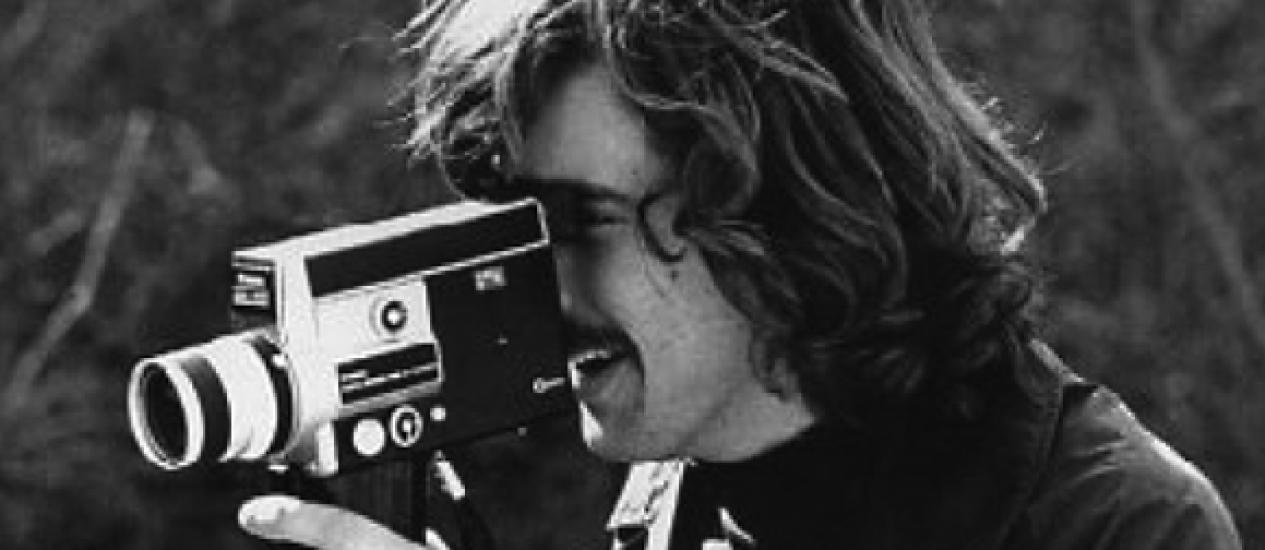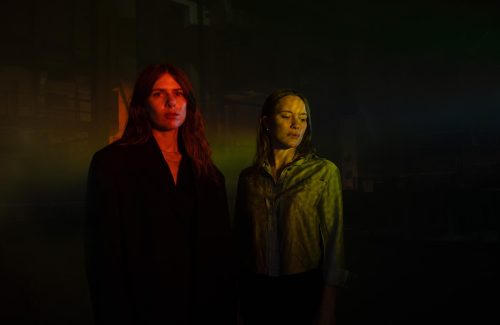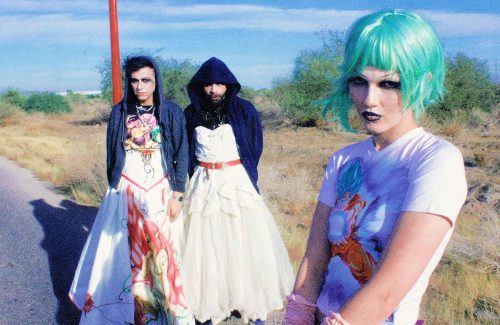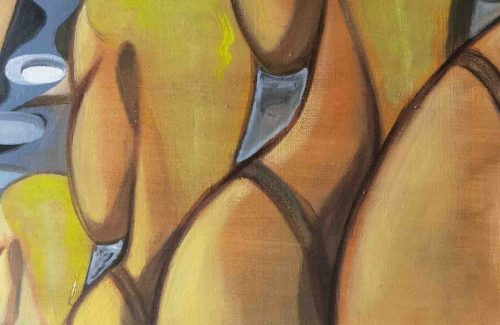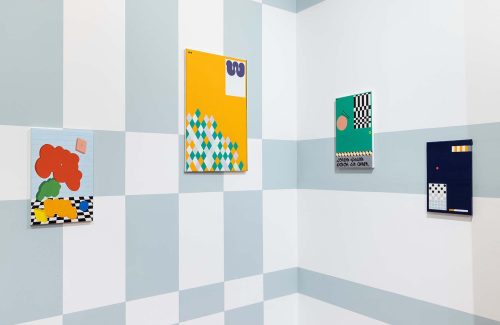‘Launched themselves into the assault of the sky’ is an expression that Marx used in a text dedicated to the Paris Commune, referring to the glorious gesture of the French proletariat. Now I regain this expression, also inspired by the title of one of the films in this program, to introduce an incursion into the most creative and agitating dimension of the extremist political struggles of Italy in the 1970s, those that pursued, among idealism, dreams, and the deconstruction of language, the idea of revolution.
Pablo Echaurren’s exhibition, his collaboration with Lotta Continua, and above all the irony and creativity of Indiani Metropolitani, with its hybridization of codes, the situationist drift, the critique of the commodification of art, provide a happy opportunity to take a look back at those years through the underground cinema and the film archives that documented them.
In the 1970s, the political movement of contestation was strongly active, uniting young people, students, workers, and the excluded in a tight struggle against the power of capital and the coercive systems that imprisoned life, work, language, expression, imagination, and also the future. This interclassist and fearless movement, erupted in the squares and in the streets, in factories, universities and schools, in the family, in the media, in art and life, with the vigor of ideas and politics, but also of desire and dream.
In the field was factory alienation, worker migration to the north of the country, women’s rights, mental health and psychiatric institutions, housing, prisons, antimilitarism and “conscientious objection,” history, politics, the family, education, the deconstruction of language and the counterculture, the body and its expression, theater and film, the peripheries, rural culture, anthropology in the field, the third page of newspapers and the pamphlet, books and diaries, art and poetry, fantasy and sex, the sky… The assault erupted throughout society and intersectionally attacked its ills and vices. The kidnapping and murder of Aldo Moro in 1978 will mark the tightening of the strategy of tension, special laws and police violence, the beginning of the end of a movement of militants and dreamers that, while also confronting enormous conflicts and contradictions, was among the most active of the Italian 20th century. The era will be marked by their gestures, some films allows us to revisit them.
It will not be the present that clarifies the past or the past that clarifies the present, but it is the dialectic between the present and the past that allows us to look to the future. Dedicated primarily to films from the 1970s, or to revisiting the archives from those years, the program gives us the opportunity to open up and reinterrogate history through cinema.
Crucial in this perspective is an unavoidable figure of the Italian underground cinema, Alberto Grifi, visionary filmmaker, artistic experimenter, son of a cameraman that accustomed him to play with film rolls and lenses, filmmaker who knew, with daring and like few others, how to carry in himself and transpose in his cinema the 60s and 70s, keeping his focus on artistic and cinematographic research. Experimental and direct cinema, questioned the integrity of its own gestures provoking scandal and cult. “Driven by the flow of film, we manage the gestures of reality, reifying and commodifying it.” In his brief statement Alberto Grifi’s introducing Anna, the filmmaker shares reflections on the radical experience of making Anna, the first Italian film shot on video in 1972, 11 hours of videotapes transcribed to a 225min film edition in 1975 with an experimentally home-made VCR. No cinema can better show the spirit and gestures of those years, acting inside the movement itself, also deconstructing the codes and the system of film production. From Grifi we will also be able to see the renowned images filmed at the Festival del proletariato giovanile al Parco Lambro (1976), the historic, festive, and troubled last edition of the Proletarian Youth Festival organized by Re Nudo magazine, bringing together Lotta Continua and the various extremist currents in the movement. The festival, attended by more than four hundred thousand people, was four days of magnificent madness, free music and partying, concerts and assemblies, also marked by public order problems, with conflicts within the movement. In the Focus dedicated to Grifi we will see another short film made by him in that decade, the political science fiction Dinni e la Normalina, ovvero la videopolizia psichiatrica contro i sedicenti nuclei di follìa militante (1978), and the other film that was commissioned and censored by RAI (Italian public television), Michele alla ricerca della felicità (1978), a raw, harshly essential narration of the condition and violence in prisons. And also, witnessing the complicities that Grifi established in the artistic milieu, Verifica Incerta, a film made in 1964 with the artist who was Pablo Echerruan’s mentor, Gianfranco Baruchello, and a ready made by Grifi, a film found on the stalls of a small market in Senigallia, Il preteso corpo (1977), a hospital documentary on experimentation on psychiatric patients.
In the first session of the program, Assalto al cielo (2016), by Francesco Munzi. It is a director of another generation, who lived through the 70s as a child, to dedicate himself today to a tenacious research in the archives, guided by the desire that the images and their protagonists can once again open a window on that season. The film, entirely constructed with archive footage, is the result of a long investigation in the main Italian audiovisual archives, scoured in search of the material less manipulated by commentaries, preferably shot by the same filmmakers who participated in the movement. It returns, inevitably, a personal look, also generating controversial reactions.
Closing the program, we’ll present the first and indispensable film by Nanni Moretti, Io sono un autarchico (1976), the first narrative feature film in Super 8 in the history of Italian cinema, an unsuccessful discovery according to French critics, a challenge to the spectacle of cinema launched by an author who did everything himself. Michele Apicella, Nanni Moretti’s fetish character, tired of relationships and rituals of communication that empty his meaning, in the midst of a sentimental crisis, is involved by a friend in a theatrical project. “Society as it is, proposes nothing. There are no values or models of life that are still credible. I have therefore decided to criticize those who seek it. Of the others, it’s not even worth occupying ourselves.” Moretti chose to speak of the left-wing politics with irony, surprising us with his parody of militancy, a bitter omen of the individualism that will follow.
~
Acknowledgments: Associazione Alberto Grifi, Fondazione Baruchello, Pablo Echaurren, Flavio Sanvoisin, Ivan Grifi, Luciano Longo, Roberto Silvestri, Giulia Strippoli, Lorenzo d’Amico De Carvalho, Francesco Munzi.
Project supported by the Italian Council (11th edition, 2022), the program aimed at supporting contemporary art in the world, promoted by the Directorate General of Contemporary Creativity of the Italian Ministry of Culture.






